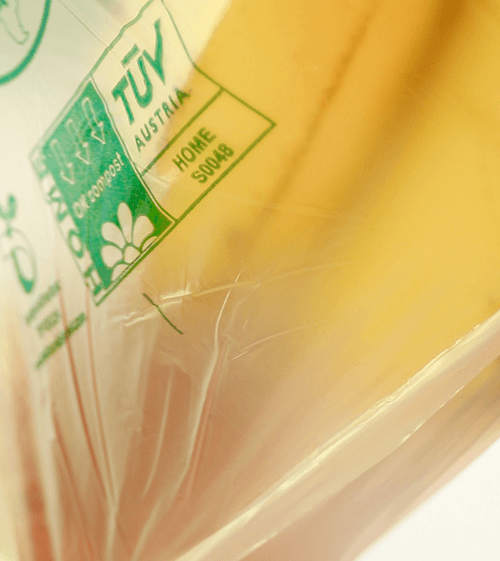Solution: OK compost HOME
Solution: OK compost HOME
TÜV AUSTRIA Certification Scheme: OK compost HOME
In which region do you need this solution?
- All regions
As an environment-friendly company, you bring compostable and biodegradable products onto the market. But how do you gain credibility when there are so many players, both reliable and unreliable? TÜV AUSTRIA’s OK environment product verification marks are the only ones of their kind to offer a customized certification label for each biodegradation environment. These labels both consistently complement each and are extensible.
OK compost HOME
Owing to the comparatively smaller volume of waste involved, the temperature in a garden compost heap is clearly lower and less constant than in an industrial composting environment. This is why composting in the garden is a more difficult, slower-paced process.
TÜV AUSTRIA’s innovative answer to this challenge was to develop OK compost HOME to guarantee complete biodegradability in the light of specific requirements, even in your garden compost heap.
OK compost HOME is not based on a standard but is the basis for several standards!
It seems important to remember that the OK compost HOME certification program does not explicitly refer to a specific standard but details all the technical requirements that a product must meet in order to obtain the certification. It should also be remembered that, as a pioneer in this field, the requirements of the OK compost HOME programme, defined in 2003 and never questioned since then, have served as the basis for the drafting of several standards such as:
- Australia: AS 5810 (2010) – Biodegradable plastics – Biodegradable plastics suitable for home composting
- France: NF T 51800 (2015) – Plastics – Specifications for plastics suitable for home composting
- Europe: prEN 17427 (2020) – Packaging — Requirements and test scheme for carrier bags suitable for treatment in well-managed home composting installations
Compostability
Composting can reduce the volume of organic waste quite significantly, while the compost produced can be used for agricultural and horticultural purposes. About 50% of all domestic waste comprises organic material, a percentage that is set to grow in the future owing to the growing popularity of biodegradable products (packaging material, disposable cutlery and plates, …).
What is the difference between “OK compost INDUSTRIAL” and “OK compost HOME”?
Products that are solely OK compost INDUSTRIAL-certified are those that compost only in industrial composting facilities (at temperatures between 55 to 60°C), so products that are solely OK compost INDUSTRIAL-certified should not go into the garden compost.
Conversely, OK compost HOME refers to products that also compost at lower temperatures, so they can go into the compost heap in your garden at home, hence the title “HOME”.
Is there any difference between “biodegradable” and “compostable”?
People often get “biodegradable” and “compostable” mixed up but they do not mean the same thing. A biodegradable product may be broken down by microorganisms but this does not necessarily imply that the product can be converted into good quality compost.
Biodegradability and compostability rely heavily on the environment where the product is broken down. As each environment (compost, soil, water, …) has different temperatures and microorganisms, the speed of the biodegradation process may vary from one site to another.
For example, bioplastics which are biodegradable in an industrial composting plant (the most aggressive atmosphere regime) are not always biodegradable in water or soil, or even in a compost bin in the garden (owing to the lower temperatures).
What tests are required to qualify for an OK compost INDUSTRIAL certificate?
The European Norm about compostability of packaging (EN 13432) requires (besides a clear and detailed description of the product) 4 tests:
test on biodegradation (chemical break down of the polymer of fibres)
test on disintegration (physically falling apart of the product in small fragments)
test on ecotoxicity (test if the composted product does not exert any negative effect on plants)
test on heavy metals content
NOTE – Biodegradation, ecotoxicity and heavy metal content are characteristics of the material, whereas disintegration is a characteristic of the material and shape (final product).









